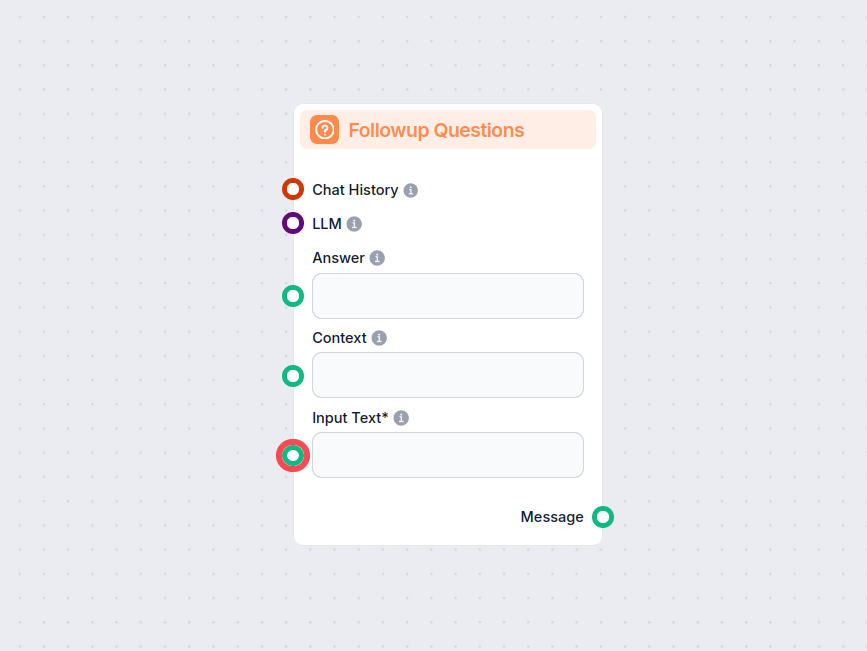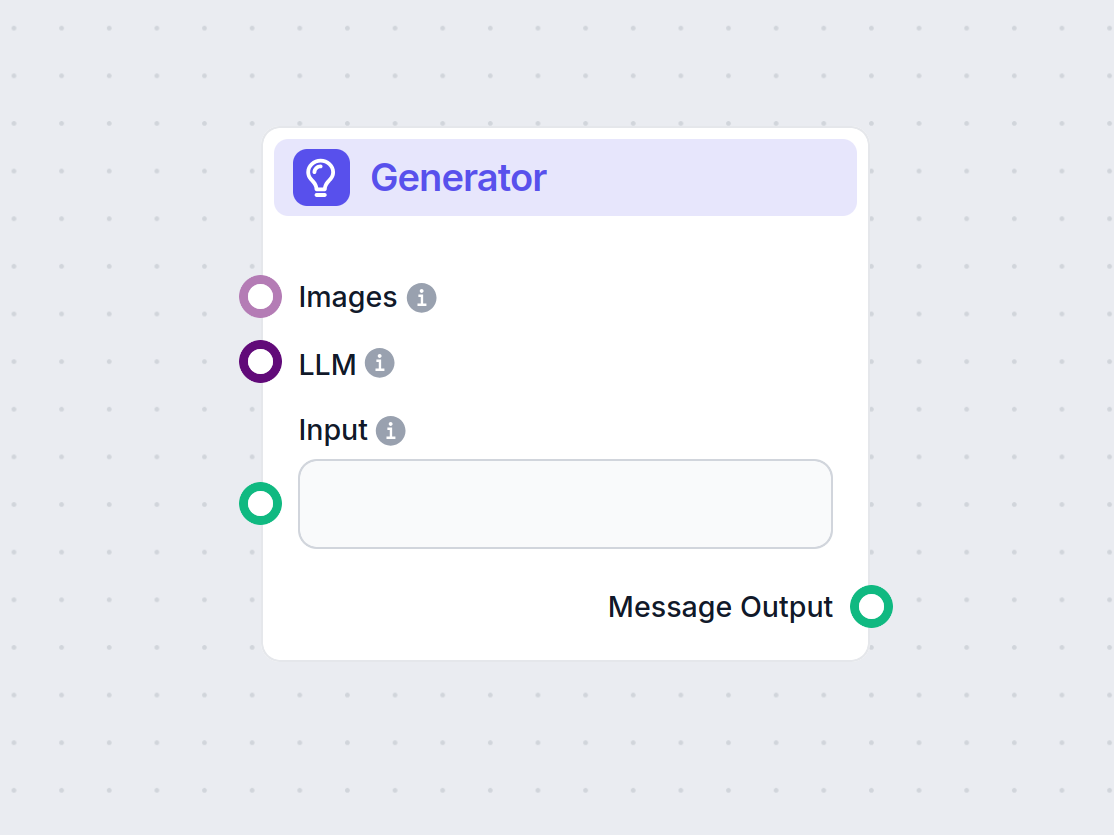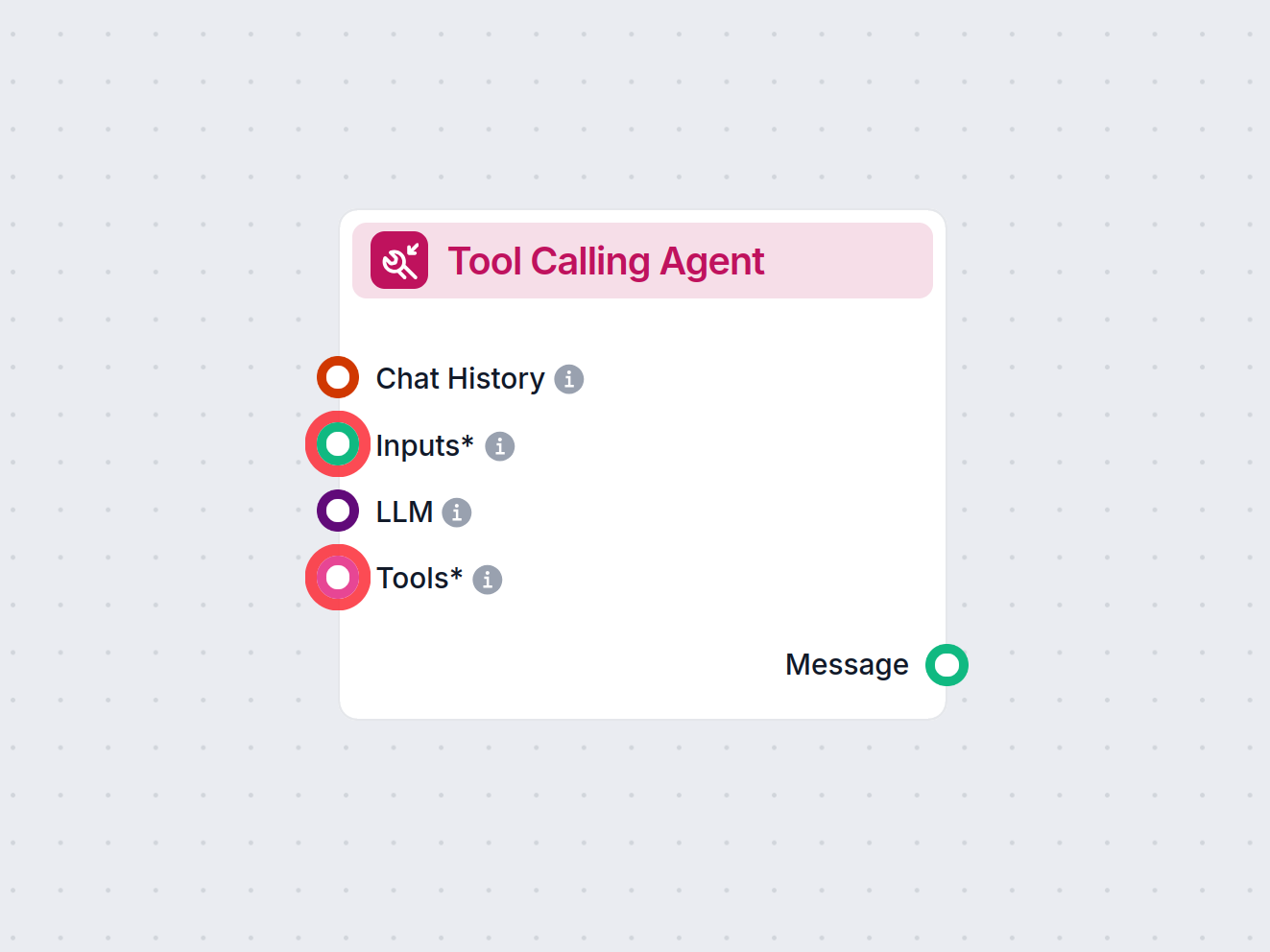
ChatInput
The Chat Input component in FlowHunt initiates user interactions by capturing messages from the Playground. It serves as the starting point for flows, enabling ...

Automatically generate targeted follow-up questions using AI and chat context to guide deeper, more meaningful conversations.
Component description
The Followup Questions component is designed to help users generate insightful follow-up questions based on a provided context, answer, and conversation history. This functionality is especially valuable in AI-driven workflows where deepening understanding of a topic or clarifying ambiguities is important—such as in chatbots, tutoring systems, or knowledge exploration tools.
This component takes an input text (typically a user’s question or statement), and, using a language model, generates a list of follow-up questions that the user should ask to gain a deeper or clearer understanding of the topic. It can leverage additional information like the current chat history, context, and previous answers to generate more precise and relevant questions.
The component supports several input fields, some optional and some required. Here’s an overview:
| Input Name | Type | Required | Description |
|---|---|---|---|
| Input Text | String (Message) | Yes | The main text input (user query or statement) to base follow-up questions on. |
| Chat History | InMemoryChatMessageHistory | No | The conversation history, which helps the model generate better-targeted follow-up questions. |
| LLM | BaseChatModel | No | The language model to use for question generation. |
| Answer | String (Message) | No | The answer to the input text, which can help improve the relevance of the follow-up questions. |
| Context | String (Message) | No | Additional context to generate more focused questions. |
| Number of questions | Integer | Yes | Specifies how many follow-up questions to generate. Default is 5. |
| System Message | String | No | An optional system-level message to modify or steer the prompt sent to the language model. |
| Feature | Benefit |
|---|---|
| Context-aware | Generates more relevant questions |
| Model-agnostic | Can work with different LLMs |
| Customizable output | Control over number and style of questions |
| History integration | Takes prior conversation into account |
By integrating the Followup Questions component, you can make your AI-driven workflows more interactive, informative, and user-friendly.
It generates relevant follow-up questions based on user input, context, and chat history, helping users explore topics more thoroughly.
Yes, you can set the number of follow-up questions generated to fit your needs.
Yes, incorporating chat history helps the component create more precise and context-aware follow-up questions.
You can connect any supported LLM (Large Language Model) in FlowHunt for question generation.
Use it in flows where you want to guide users to deeper understanding or further inquiry, such as research assistants, customer support bots, or educational chatbots.
Enhance your AI flows by adding dynamic follow-up question generation for smarter, more engaging conversations.
The Chat Input component in FlowHunt initiates user interactions by capturing messages from the Playground. It serves as the starting point for flows, enabling ...
Explore the Generator component in FlowHunt—powerful AI-driven text generation using your chosen LLM model. Effortlessly create dynamic chatbot responses by com...
Explore the Tool Calling Agent in FlowHunt—an advanced workflow component that enables AI agents to intelligently select and use external tools to answer comple...
Cookie Consent
We use cookies to enhance your browsing experience and analyze our traffic. See our privacy policy.

